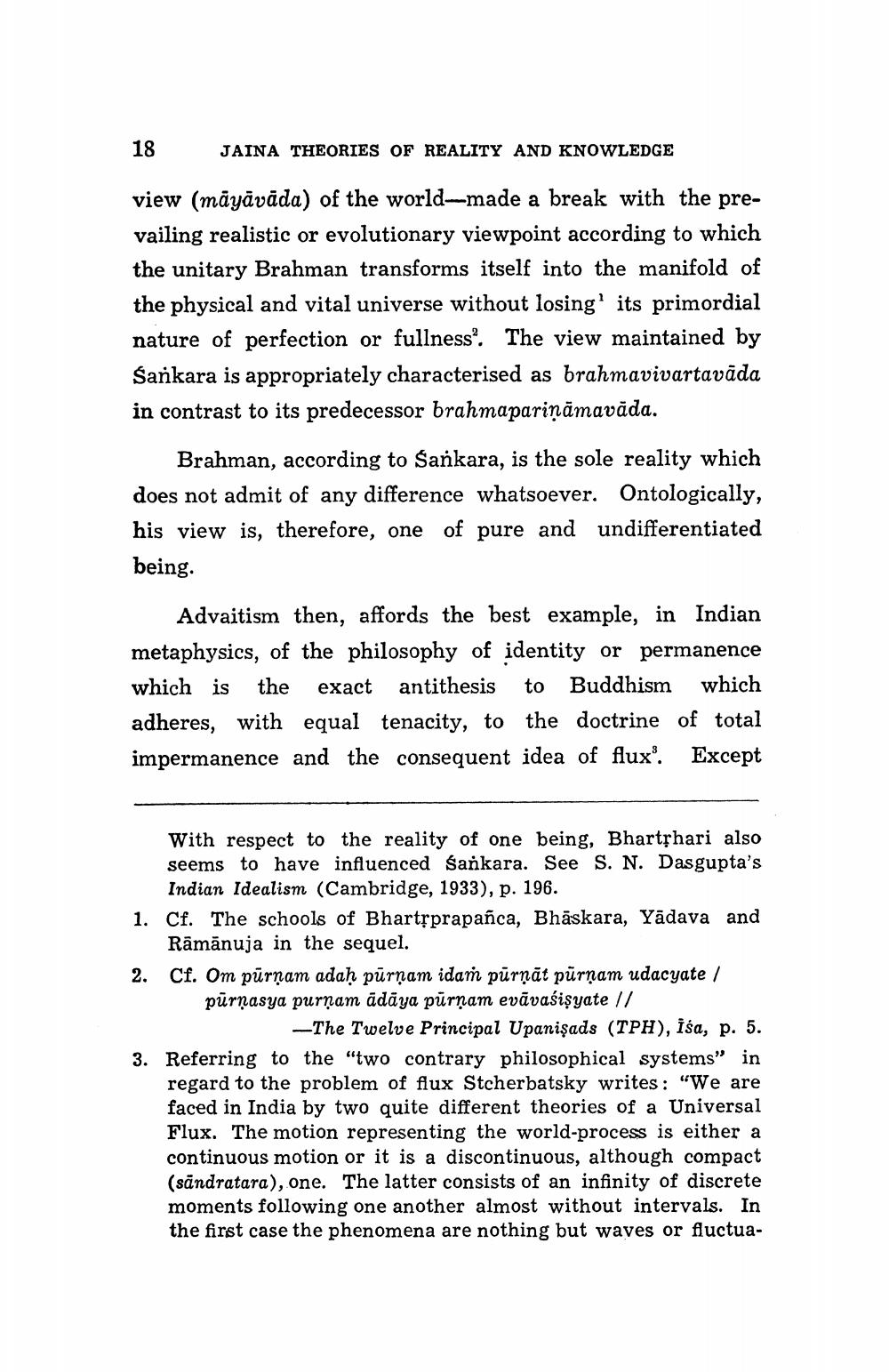________________
18
JAINA THEORIES OF REALITY AND KNOWLEDGE
view (māyāvāda) of the world-made a break with the prevailing realistic or evolutionary viewpoint according to which the unitary Brahman transforms itself into the manifold of the physical and vital universe without losing' its primordial nature of perfection or fullness”. The view maintained by Sankara is appropriately characterised as brahmavivartavāda in contrast to its predecessor brahmapariņāmavāda.
Brahman, according to Sankara, is the sole reality which does not admit of any difference whatsoever. Ontologically, his view is, therefore, one of pure and undifferentiated being
Advaitism then, affords the best example, in Indian metaphysics, of the philosophy of identity or permanence which is the exact antithesis to Buddhism which adheres, with equal tenacity, to the doctrine of total impermanence and the consequent idea of fluxo. Except
With respect to the reality of one being, Bhartshari also seems to have influenced sankara. See S. N. Dasgupta's
Indian Idealism (Cambridge, 1933), p. 196. 1. Cf. The schools of Bhartsprapanca, Bhāskara, Yādava and
Rāmānuja in the sequel. Cf. Om pūrņam adaḥ pūrņam idam pārņāt pūrņam udacyate / pūrņasya purņam ādāya pūrņam evāvasişyate //
-The Twelve Principal Upanişads (TPH), isa, p. 5. 3. Referring to the "two contrary philosophical systems" in
regard to the problem of flux Stcherbatsky writes: "We are faced in India by two quite different theories of a Universal Flux. The motion representing the world-process is either a continuous motion or it is a discontinuous, although compact (sāndratara), one. The latter consists of an infinity of discrete moments following one another almost without intervals. In the first case the phenomena are nothing but waves or fluctua




